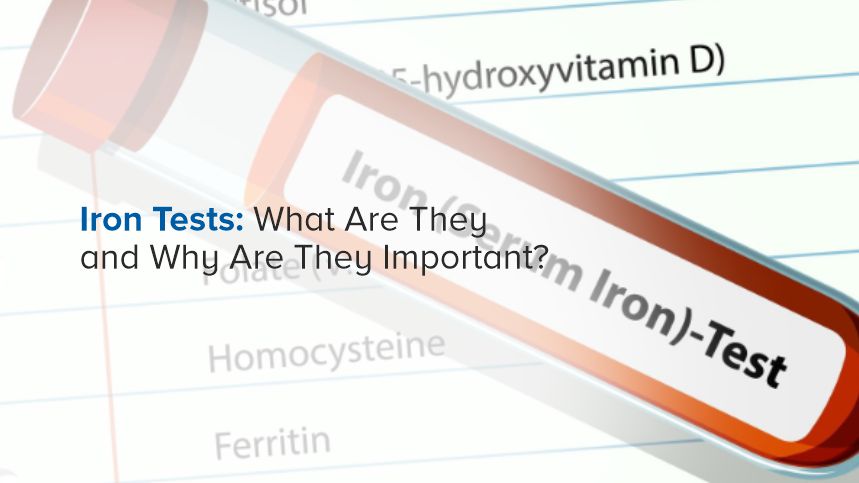


Condition
- Lifestyle Packages
- Blood Banking & Transfusion
- Blood Banking & Transfusion
- Top tests
- Top tests
- Lifestyle Packages
- Diabetes
- Blood Banking & Transfusion
- Blood Banking & Transfusion
- Blood Banking & Transfusion
- Blood Banking & Transfusion
- Blood Banking & Transfusion
- Others
- Others
- Others
- Others
- Blood Banking & Transfusion
- Blood Banking & Transfusion
- Blood Banking & Transfusion
- Blood Banking & Transfusion
- Vitamin Deficiency
- Vitamin Deficiency
- Vitamin Deficiency
- Vitamin Deficiency
- Vitamin Deficiency
- Blood Banking & Transfusion
- Blood Banking & Transfusion
- Blood Banking & Transfusion
- Blood Banking & Transfusion
- Diabetes
- Diabetes
- Heart Disease & Hypertension
- Preventive Health Checkup
- Diabetes
- Preventive Health Checkup
- Preventive Health Checkup
- Diabetes
- Diabetes
- Heart Disease & Hypertension
- Top tests
- Heart Disease & Hypertension
- Diabetes
- Top tests
- Diabetes
- Heart Disease & Hypertension
- Lifestyle Packages
- Heart Disease & Hypertension
- Lifestyle Packages
- Heart Disease & Hypertension
- Heart Disease & Hypertension
- Lifestyle Packages
- Preventive Health Checkup
- Preventive Health Checkup
- Top tests
- Preventive Health Checkup
- Heart Disease & Hypertension
- Heart Disease & Hypertension
- Heart Disease & Hypertension
- Top tests
- Top tests
- Lifestyle Packages
- Heart Disease & Hypertension
- Heart Disease & Hypertension
- Top tests
- Heart Disease & Hypertension
- Preventive Health Checkup
- Diabetes
- Lifestyle Packages
- Heart Disease & Hypertension
- Top tests
- Heart Disease & Hypertension
- Heart Disease & Hypertension
- Diabetes
- Lifestyle Packages
- Preventive Health Checkup
- Diabetes
- Top tests
- Diabetes
- Allergy
- Heart Disease & Hypertension
- Diabetes
- Heart Disease & Hypertension
- Diabetes
- Lifestyle Packages
- Lifestyle Packages
- Top tests
- Preventive Health Checkup
- Lifestyle Packages
- Preventive Health Checkup
- Preventive Health Checkup
- Diabetes
- Top tests
- Heart Disease & Hypertension
- Preventive Health Checkup
- Top tests
- Heart Disease & Hypertension
- Lifestyle Packages
- Lifestyle Packages
- Diabetes
- Preventive Health Checkup
- Top tests
- Diabetes
- Top tests
- Preventive Health Checkup
- Preventive Health Checkup
- Preventive Health Checkup
- Diabetes
- Lifestyle Packages
- Lifestyle Packages
- Heart Disease & Hypertension
- Lifestyle Packages
- Heart Disease & Hypertension
- Lifestyle Packages
- Preventive Health Checkup
- Preventive Health Checkup
- Preventive Health Checkup
- Lifestyle Packages
- Top tests
- Lifestyle Packages
- Top tests
- Lifestyle Packages
- Top tests
- Diabetes
- Diabetes
- Others
- Blood Disorders
- Top tests
- Others
- Others
- Others
- Fever
- Fever
- Blood Disorders
- Blood Disorders
- Preventive Health Checkup
- Preventive Health Checkup
- Profile
- Kidney Disease
- Kidney Disease
- Diabetes
- Diabetes
- Heart Disease & Hypertension
- Preventive Health Checkup
- Lifestyle Packages
- Thyroid Disorder
- Diabetes
- Diabetes
- Diabetes
- Diabetes
- Diabetes
- Diabetes
- Diabetes
- Top tests
- Allergy
- Top tests
- Top tests
- Top tests
- Top tests
- Diabetes
- Top tests
- Diabetes
- Top tests
- Top tests
- Top tests
- Liver Disease
- Diabetes
- Top tests
- Vitamin Deficiency
- Top tests
- Top tests
- Liver Disease
- Top tests
- Top tests
- Top tests
- Anemia
- Anemia
- Anemia
- Diabetes
- Diabetes
- Anemia
- Top tests
- Top tests
- Top tests
- Preventive Health Checkup
- Thyroid Disorder
- Heart Disease & Hypertension
- Top tests
- Preventive Health Checkup
- Diabetes
- Heart Disease & Hypertension
- Top tests
- Fever
- Allergy
- Liver Disease
- Lifestyle Packages
- Heart Disease & Hypertension
- Top tests
- Arthritis
- Top tests
- Top tests
- Heart Disease & Hypertension
- Kidney Disease
- Preventive Health Checkup
- Allergy
- Top tests
- Lifestyle Packages
- Top tests
- Kidney Disease
- Top tests
- Lifestyle Packages
- Top tests
- Preventive Health Checkup
- Preventive Health Checkup
- Top tests
- Top tests
- Vitamin Deficiency
- Allergy
- Diabetes
- Top tests
- Top tests
- Top tests
- Top tests
- Heart Disease & Hypertension
- Allergy
- Top tests
- Preventive Health Checkup
- Top tests
- Top tests
- Infertility
- Top tests
- Lifestyle Packages
- Allergy
- Diabetes
- Heart Disease & Hypertension
- Lifestyle Packages
- Preventive Health Checkup
- Preventive Health Checkup
- Top tests
- Preventive Health Checkup
- Top tests
- Diabetes
- Top tests
- Infertility
- Top tests
- Thyroid Disorder
- Top tests
- Allergy
- Preventive Health Checkup
- Vitamin Deficiency
- Top tests
- Top tests
- Infertility
- Lifestyle Packages
- Diabetes
- Liver Disease
- Kidney Disease
- Vitamin Deficiency
- Top tests
- Heart Disease & Hypertension
- Heart Disease & Hypertension
- Top tests
- Heart Disease & Hypertension
- Heart Disease & Hypertension
- Heart Disease & Hypertension
- Infertility
- Heart Disease & Hypertension
- Vitamin Deficiency
- Vitamin Deficiency
- Arthritis
- Arthritis
- Top tests
- Top tests
- Lifestyle Packages
- Preventive Health Checkup
- Lifestyle Packages
- Preventive Health Checkup
- Vitamin Deficiency
- Top tests
- Lifestyle Packages
- Lifestyle Packages
- Preventive Health Checkup
- Top tests
- Preventive Health Checkup
- Top tests
- Heart Disease & Hypertension
- Infertility
- Top tests
- Top tests
- Preventive Health Checkup
- Lifestyle Packages
- Top tests
- PCOD
- Preventive Health Checkup
- Lifestyle Packages
- Preventive Health Checkup
- Top tests
- Fever
- PCOD
- Kidney Disease
- Top tests
- Top tests
- Preventive Health Checkup
- Preventive Health Checkup
- Liver Disease
- Thyroid Disorder
- Top tests
- Heart Disease & Hypertension
- PCOD
- Top tests
- Arthritis
- Preventive Health Checkup
- Kidney Disease
- Lifestyle Packages
- Top tests
- Allergy
- Top tests
- Top tests
- Diabetes
- Thyroid Disorder
- Preventive Health Checkup
- Top tests
- Lifestyle Packages
- Preventive Health Checkup
- Top tests
- Kidney Disease
- Liver Disease
- Infertility
- Top tests
- Anemia
- Top tests
- Top tests
- Top tests
- Preventive Health Checkup
- Bone Health
- Cancer
- Fatty Liver

Tests
Iron is a mineral that plays a vital role in the body, influencing everything from energy levels to immune function. Yet, iron imbalances are common and can lead to significant health issues if left unchecked. This is where iron tests come into play. Whether you’re experiencing symptoms of iron deficiency or simply want to monitor your health, understanding iron tests and their importance is crucial.
What Are Iron Tests?
Iron tests measure the levels of iron in your blood and assess how efficiently your body stores and utilizes this essential mineral. They are usually part of a broader diagnostic approach to understand symptoms that may indicate iron-related disorders.
Components of Iron Tests
An iron test typically does not stop at measuring the iron content alone. It may also include related tests to provide a complete picture:
- Serum Iron: Measures the amount of circulating iron in your blood.
- Ferritin: Assesses stored iron levels in your body.
- Total Iron-Binding Capacity (TIBC) or Transferrin Saturation: Indicates how well your blood can carry iron.
- Complete Blood Count (CBC): Often performed alongside iron tests to check for anemia or other related conditions.
Why Are Iron Tests Done?
Iron tests are ordered for a variety of reasons. Below are some common scenarios when your physician may recommend taking these tests:
- Fatigue and Weakness: Persistent tiredness could be a sign of iron deficiency anemia.
- Pale Skin or Brittle Nails: Signs pointing to possible iron imbalance.
- Monitoring Iron Therapy: People receiving supplements may need regular testing to ensure proper levels.
- Evaluating Blood Disorders: Helps rule out conditions like hemochromatosis, where the body absorbs too much iron.
Why Is Iron Important?
Iron is indispensable for several critical biological processes. Below are some of the primary roles it plays:
- Oxygen Transport: Iron is a key component of hemoglobin, the protein in red blood cells responsible for carrying oxygen throughout the body.
- Energy Production: It helps produce energy by aiding in several enzymatic reactions.
- Immune Function: Iron supports the body's immune system to combat infections effectively.
- Cognitive Health: Sufficient iron levels are essential for maintaining focus, memory, and brain function.
An imbalance in iron levels, whether too high or too low, can disrupt these vital functions and significantly impact your health.
How Are Iron Tests Done?
Iron tests are simple, quick, and minimally invasive. Here’s what happens during the process:
- Preparation: You may be asked to fast for 8–12 hours before the test. Check with your physician for specific instructions.
- Sample Collection: A healthcare provider will draw a small blood sample, typically from a vein in your arm.
- Processing: The blood sample is sent to a lab for analysis.
- Results: The results usually come back within a few days. Your physician will explain what they mean and suggest next steps.
Understanding Iron Test Results
Your test results will generally fall into one of three categories:
- Normal Levels: Your iron levels are within the healthy range, indicating no significant issues.
- Low Levels:
- Could indicate iron deficiency anemia or chronic blood loss.
- May require dietary changes or supplementation.
- High Levels:
- Could signal hereditary hemochromatosis or excessive supplementation.
- May necessitate medical treatment such as phlebotomy (regular blood removal).
Normal Reference Ranges
While ranges can vary slightly between laboratories, below are general benchmarks:
- Serum iron: 60–170 mcg/dL
- Ferritin:
- Men: 24–336 ng/mL
- Women: 11–307 ng/mL
- Children: 7–140 ng/mL
- Transferrin saturation: 20–50%
Always consult your physician to interpret your results within the context of your overall health.
Steps to Maintain Healthy Iron Levels
Maintaining balanced iron levels is both achievable and vital for overall health. Here are actionable steps you can take:
- Eat an Iron-Rich Diet
- Sources of heme iron (easier to absorb): Red meat, poultry, fish.
- Sources of non-heme iron (plant-based): Spinach, lentils, fortified cereals.
- Pairing iron sources with vitamin C-rich foods like oranges or bell peppers can improve absorption.
- Limit Excessive Iron Intake
- Avoid over-supplementing unless prescribed by a healthcare provider.
- Regular Screenings
- If you belong to a high-risk group (e.g., pregnant women, vegetarians, individuals with chronic illnesses), schedule routine check-ups.
- Manage Underlying Conditions
- Treat chronic issues like gastrointestinal bleeding or vitamin deficiencies that can affect iron levels.
When to Consult a Doctor
If you’re experiencing persistent symptoms like fatigue, irregular heartbeat, or unexplained weight loss, it’s essential to consult a healthcare provider. Early diagnosis can prevent complications and ensure effective management.
Conclusion
Think of iron tests as more than just a diagnostic tool; they are a proactive step toward ensuring holistic health. Regular screenings can identify imbalances early, helping you make informed decisions about your diet, lifestyle, and medical care.
Taking control of your health starts with awareness. Don’t wait until symptoms disrupt your life. Schedule an iron test and stay ahead of potential problems.
WANT TO BOOK HEALTH CHECKUP ?
Categories
Lifestyle Packages
35
Blood Banking & Transfusion
15
Top tests
87
Diabetes
40
Others
8
Vitamin Deficiency
12
Heart Disease & Hypertension
37
Preventive Health Checkup
45
Allergy
9
Blood Disorders
3
Fever
4
Profile
1
Kidney Disease
8
Thyroid Disorder
5
Liver Disease
6
Anemia
5
Arthritis
4
Infertility
6
PCOD
3
Bone Health
1
Cancer
1
Fatty Liver
1
Recent Blogs
Top Foods That Help Lower Homocysteine Levels Naturally
Elevated homocysteine levels pose significant health risks for millions of Indians, contributing...
29-08-2025
What Is Homocysteine and Why Is It Important?
Homocysteine represents a critical biomarker that medical professionals increasingly...
29-08-2025
Complete Blood Count (CBC) vs. Hemogram: What’s the Difference?
When you visit your healthcare provider for routine testing or diagnostic evaluation, you...
29-08-2025







 vs. Hemogram What’s the Difference.jpg)